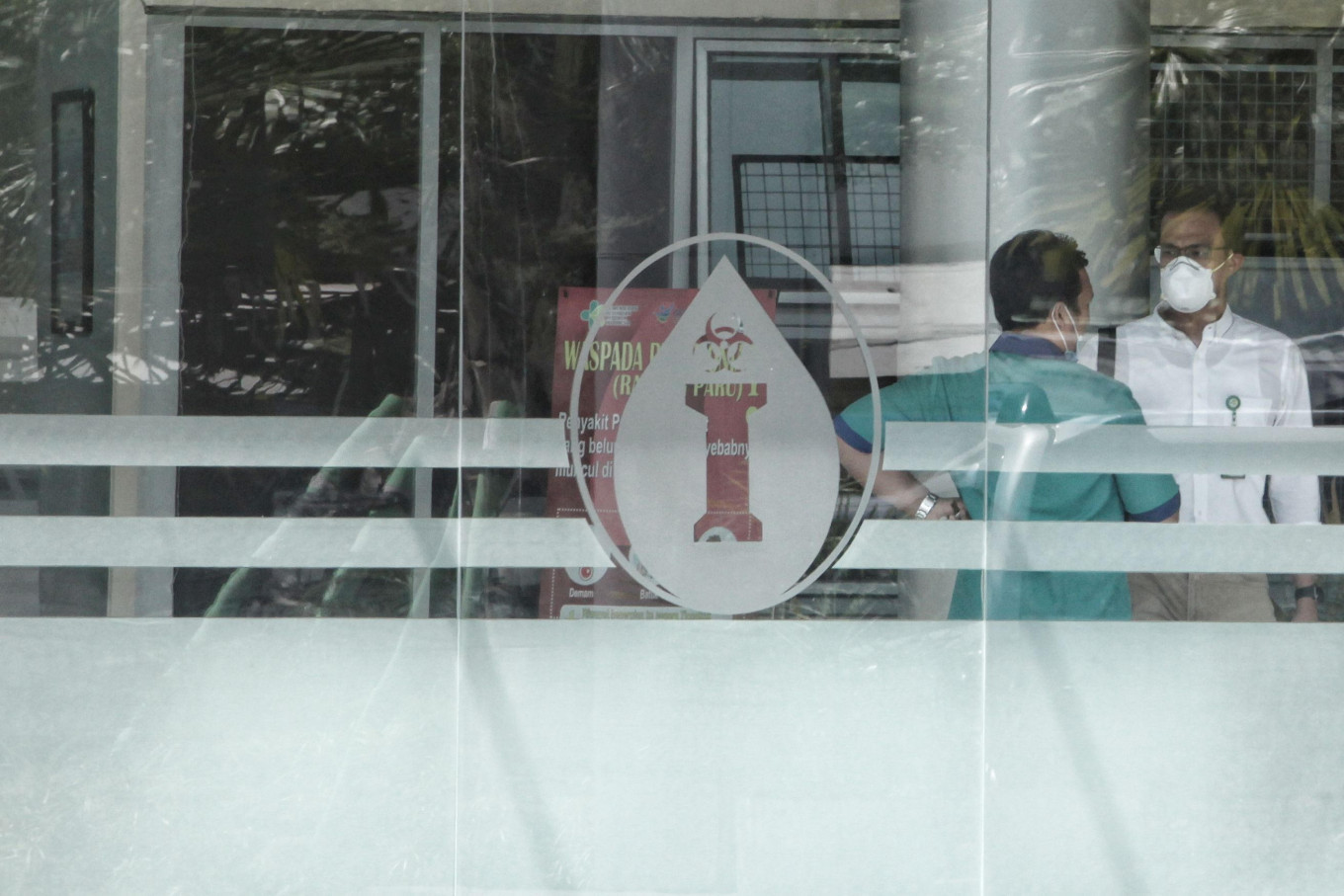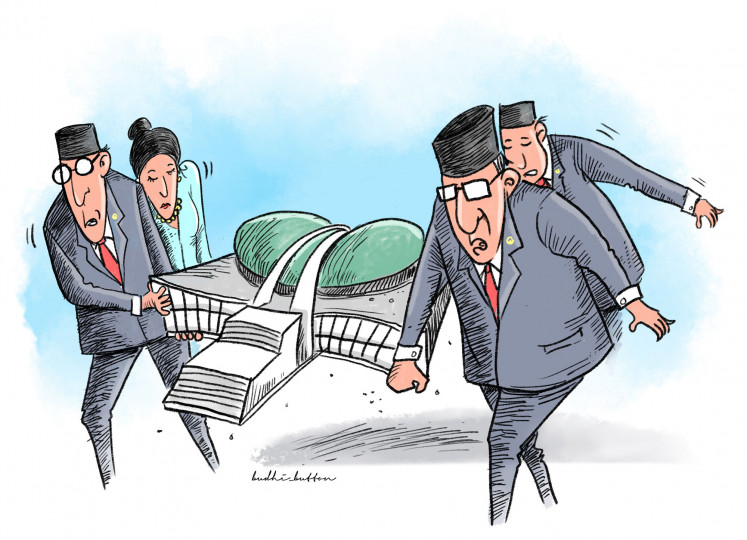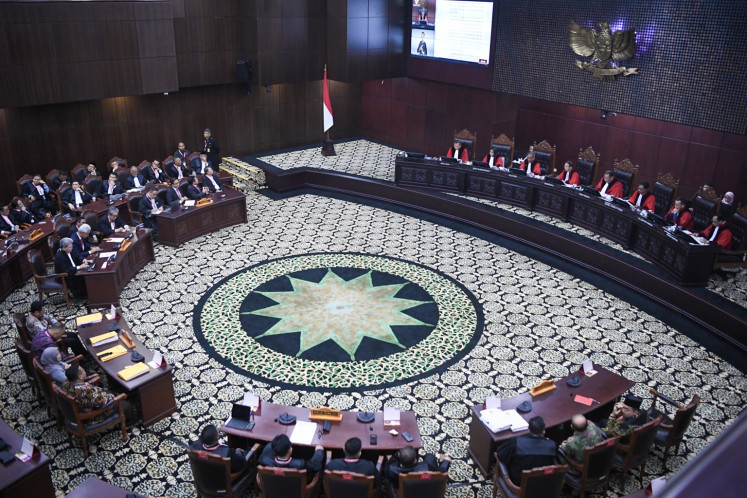Protect privacy
Details of the patients quickly made rounds on social media, another display of cavalier attitudes about privacy among Indonesian citizens and, worse, the media.
Change Size
 Hospital staff members and visitors wear masks at the isolation ward of Sulianti Saroso Infectious Diseases Hospital (RSPI) in Jakarta on Monday. (JP/Seto Wardhana)
Hospital staff members and visitors wear masks at the isolation ward of Sulianti Saroso Infectious Diseases Hospital (RSPI) in Jakarta on Monday. (JP/Seto Wardhana)
I
ndonesians are coming to terms with the knowledge that the novel coronavirus disease (COVID-19) is among us. But if authorities want more people to report when they experience symptoms or have had earlier contact with potentially infected people, they must do more to protect the identities of patients. The early, personal revelations about confirmed cases have likely discouraged people who may have the virus from coming forward.
One aghast patient said she discovered her coronavirus status on national television on Monday morning when no less than President Joko “Jokowi” Widodo said Indonesia had confirmed the cases of a mother and daughter. The patient said she had responsibly reported to a medical facility that she and her mother had been in contact with a Japanese citizen in Indonesia who had been found to have the coronavirus later in Malaysia.
The patient, now identified as Case 1, was shocked at the sudden attention, as the family home in Depok, West Java, was quickly surrounded by media. She added that the stress from the exposure was worse than the infection itself. Both patients are reportedly recuperating.
Details of the patients quickly made rounds on social media, another display of cavalier attitudes about privacy among Indonesian citizens and, worse, the media. Many officials seemed ignorant of the right to confidentiality and privacy guaranteed in the 2009 Hospital Law. The law also elaborates a patient’s right “to obtain information regarding diagnoses and procedures of medical measures, alternative measures, possible risks and complications, prognoses of the said measures”, among other rights. No one should be the last to discover the results of their own swab tests.
As the growing infection rate gives rise to emergency situations, relevant authorities, the public and the media must remember that the situation does not permit the sacrifice of the right to privacy or confidentiality. Affected individuals should be able to recuperate in peace rather than face possible violation of their privacy.
This is far from our first brush with an epidemic. In our dense urban communities, we are familiar, for instance, with dengue. Affected families are treated with empathy, which likely contributes to willingness to report potential cases. This reporting allows the community head to request fumigation (although mosquitos have reportedly become immune to the routine).
Nevertheless, the latest outbreak has provided the first test of this Cabinet in a public health emergency, and the results are clearly clumsy, with differing information among authorities and an evident lack of standard operating procedures in handling information on individuals under testing and treatment.
As the House of Representatives has just begun deliberating the data protection bill, the public health emergency presents an opportunity to ensure that information about a person’s health is not for public consumption.
Such invasions of privacy are not useful for those looking to protect themselves or their families. Our focus should be on preventing and the combatting the virus itself. Sensational broadcasts from a Depok house may actively harm that effort.









